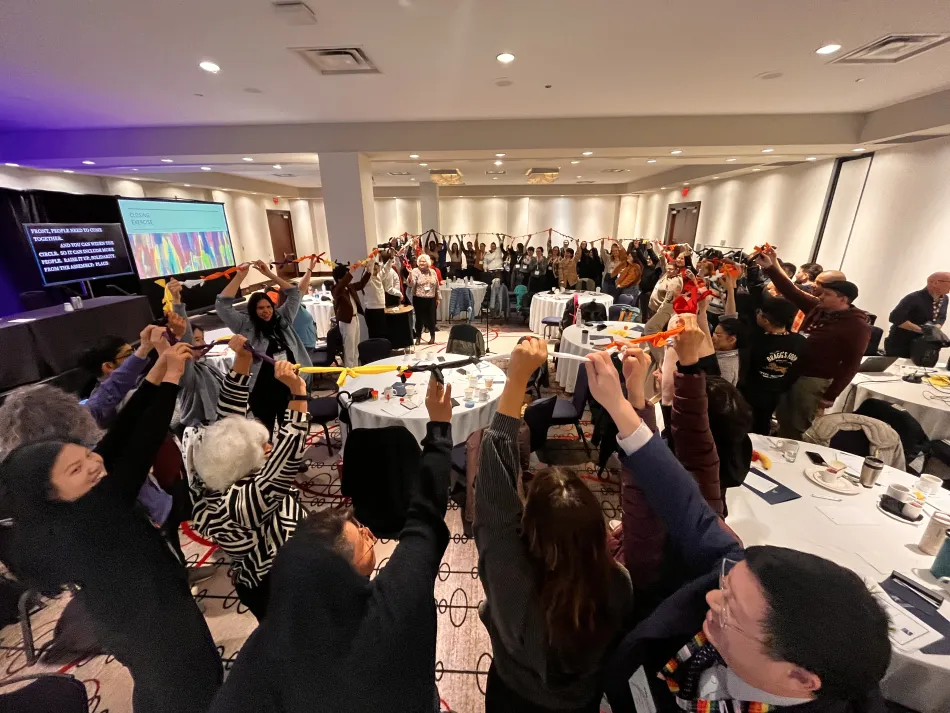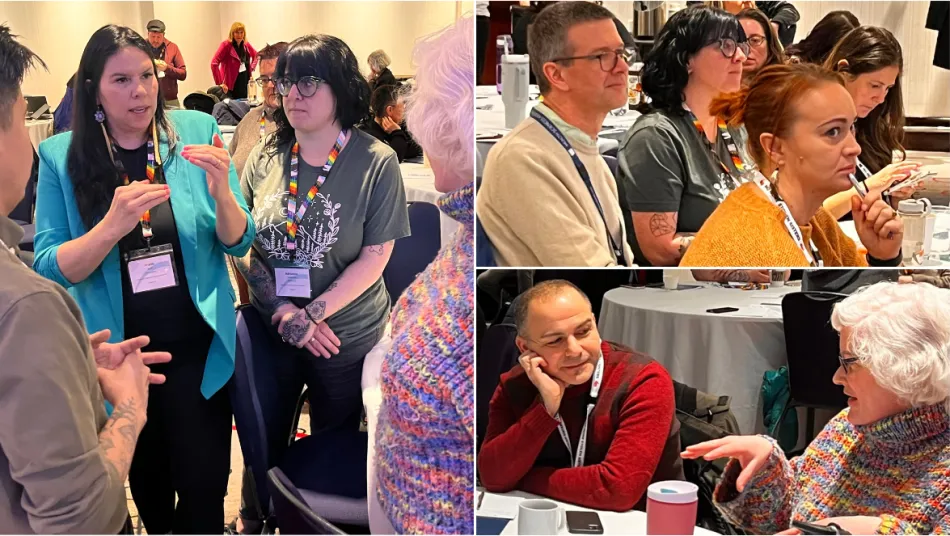Stronger Together: Highlights from HSA's First Equity Summit

HSA’s first-ever Equity Summit, held in Vancouver February 19, brought together HSA members to connect and learn about a more equitable working world.
Following a welcome and opening from Elder Ann Seaweed, member of HSA’s Indigenous Circle and a social worker at Nanaimo Regional General Hospital, HSA President Kane Tse introduced the guest speakers who shared their perspectives on the theme for the day: “Solidarity: Stronger Together.”
“In the last five years at HSA we have deepened our awareness of and commitment to equity and inclusion. In 2020 HSA led the way for other organizations when we published Confronting Racism with Solidarity. In 2023 our follow up report, Discrimination in the Workplace discovered that colleagues were identified as the main perpetrators of discriminatory remarks. One of the recommendations from that report was that we all act in solidarity and become active bystanders,” Tse said.
Participants heard from a number of speakers, and engaged in question and answer sessions to explore issues and strategies to actively engage in solidarity to address equity in our communities, our workplaces, and in the union.

Len Pierre is a Coast Salish from the Katzie Nation and award-winning entrepreneur, professor, consultant, TEDx Speaker, social activist, change agent, and traditional knowledge sharer. He specializes in the development of educational programs and services with decolonization and reconciliation as core values. He opened the day with an inspiring message of solidarity, touching on the lessons we have to learn from Indigenous ways of being, the roles we play as individuals, and the obstacles we face in achieving solidarity in support of systemic change against our colonial society. He also emphasized the need to care for ourselves and others in doing this challenging work.
Vivek Chibber, a sociologist at New York University, and author of several books, including Confronting Capitalism: How the World Works and how to Change It, The Class Matrix: Social Theory after the Cultural Turn, and Postcolonial Theory and The Specter of Capital. He is also the editor of Catalyst: A Journal of Theory and Strategy. Chibber gave delegates a lot to think about from the perspective of a class analysis of equity issues. He challenged participants to look at the biases everyone brings to their work in the union, and the need for mutual respect if we are to thrive and do the best for our members in an increasingly hostile economic climate.
Winnie Ng, a labour rights activist and scholar with a deep commitment to anti-racism, equity, and worker empowerment, and former Unifor National Chair in Social Justice and Democracy at Toronto Metropolitan University, joined Salmaan Khan, an Assistant Professor in the Department of Criminology at Toronto Metropolitan University, to present new research about the experience of racialized workers in Canada, and the role of the labour movement in advocating for and with these workers. They also shared examples of internal equity initiatives undertaken in some Canadian unions.
Adrienne Smith, a transgender human rights activist and social justice lawyer, addressed the issues of inequity experienced by transgender workers. Their message about the dangerous times we are in and the need to double down in our fight for a better world not just for our members, but for all, wrapped up the day by reiterating the message all the speakers shared: an injury to one is an injury to all, and we need to be in solidarity in the work we do as trade unionists.